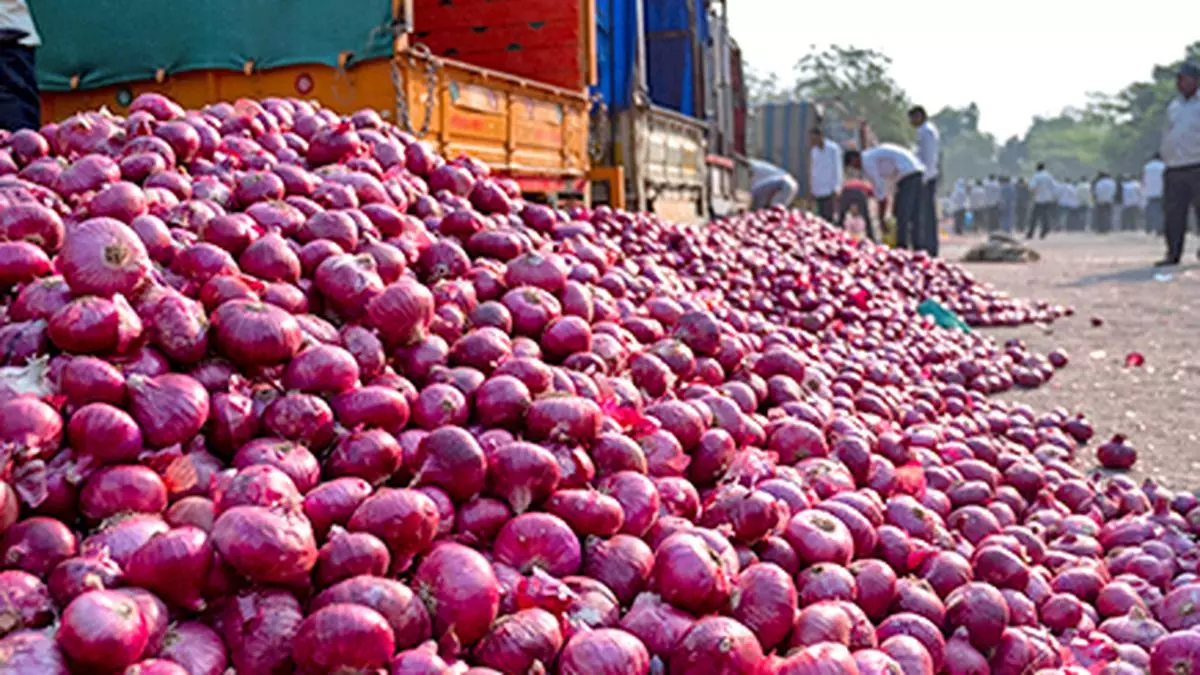Govt to release buffer stock in wholesale markets to control onion prices
As part of its efforts to check onion prices, the Centre has begun a bulk supply of onions from its buffer stocks into wholesale markets in Delhi and other key cities this week. It also plans to further expand retail sales of onions sold at cheaper than market rates across key cities. The Ministry is also looking to introduce guidelines to curb misleading ads by coaching institutes and finalise guidelines to prevent surrogate advertising.
Speaking to reporters on Monday, Consumer Affairs Secretary Nidhi Khare said NCCF and NAFED had procured 4.70 LMT of onion for the Price Stabilization Fund (PSF) buffer against a target of 5 LMT. “We anticipated a price surge after lifting the export duty. With our 4.7 lakh tonne buffer stock and increased kharif sowing area, we expect to keep onion prices in check,” she said. The government started selling onions at ₹35 per Kg from September 5 in Delhi and other cities in retail markets to relieve consumers. Khare said retail disposal is being done in major consumption centres across the country and will be further expanded in other cities where the prices exceed the national average.
Khare expressed optimism about the upcoming kharif onion crop, citing significantly higher acreage compared to last year. “Arrivals will begin next month, and we do not see foresee any difficulties,” she added. The Consumer Affairs Secretary also said that with domestic tur and urad production looking promising and increased imports, pulses prices are also expected to be stable for the coming months. The Ministry said it would monitor tomato prices and intervene if required with similar measures. It also noted that there were no production issues.
Meanwhile, the Ministry is looking to develop three sets of guidelines to prohibit surrogate advertising, curb greenwashing, and prevent misleading ads by coaching institutes. Surrogate advertising refers to circumventing regulations by advertising for goods, products, and services in areas where it is prohibited or restricted. Ministry officials said that draft guidelines on this issue will be released for public consultation.
DoCA has also finalised a “Safety Pledge” for e-commerce companies in consultation with all the stakeholders as part of its one of the 100 days action plan to prioritize consumer safety. The safety pledge is a voluntary commitment of online platforms with respect to the safety of goods sold to consumers, the detection and prevention of the sale of unsafe products by cooperating with statutory authorities, and the raising of consumer product safety awareness amongst third-party sellers. Khare said this aligns with the good practices in other international markets.
